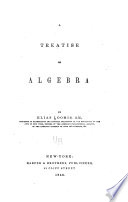 | Elias Loomis - Algebra - 1846 - 380 pages
...development, we perceive that any coefficient may be derived from the preceding one by the following rule : If the coefficient of any term be multiplied by the index of x in that term, and divided by the index of a increased by one, it will give the coefficient of the... | |
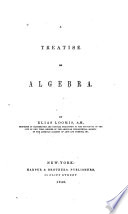 | Elias Loomis - Algebra - 1846 - 376 pages
...development, we perceive that any coefficient may be derived from the preceding one by the following rule : If the coefficient of any term be multiplied by the index of x in that term, and divided by the index of a increased by one, it will give the coefficient of the... | |
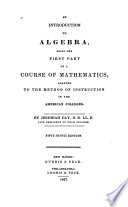 | Jeremiah Day - Algebra - 1847 - 358 pages
...CO-EFFICIENT OF THE FIRST TERM ts I ; THAT OF THE SECOND IS EQUAL TO THE INDEX OF THE POWER J AND UNIVERSALLY, IF THE CO-EFFICIENT OF ANY TERM BE MULTIPLIED BY THE INDEX OF THE LEADING QUANTITY IK THAT TERM, AND DIVIDED BY THE INDEX OF THE FOLLOWING QUANTITY INCREASED BY 1, IT WILL GIVE THE CO-EFFICIENT... | |
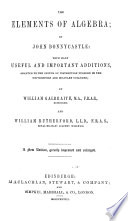 | John Bonnycastle - 1848 - 334 pages
...that the coefficient of the second term is the index of the power of the first : and for the rest, if the coefficient of any term be multiplied by the index of the leading quantity in it, and the product be divided by the number of terms to that place, it will give the coefficient... | |
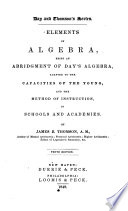 | Jeremiah Day, James Bates Thomson - Algebra - 1848 - 264 pages
...co-efficient of the first term is 1 ; that of the second is equal to the index of the power ; and universally, if the co-efficient of any term be multiplied by the index of the leading quantity in thai term, and divided by the index of the following quantity increased by 1, it will give the co-efficient... | |
 | Olinthus Gilbert Gregory - 1848 - 572 pages
...coefficients. — The first is always 1, the second is the index of the power : and, for the others, if the coefficient of any term be multiplied by the index of its leading quantity, and the product be divided by the number of terms to that place, it will give... | |
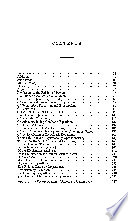 | John Bonnycastle - Algebra - 1851 - 288 pages
...that the coefficient of the second term is the index of the power of the first : and for the rest, if the coefficient of any term be multiplied by the index of the leading quantity in it, and the product be divided by the number of terms to that place, it will give the coefficient... | |
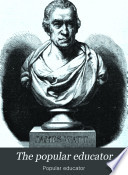 | Popular educator - 1852 - 1272 pages
...ofthejirst term is 1 ; Hint 1 of the second is equal to the inilex of the power ; and, universally, \ if the co-efficient of any term be multiplied by the index of the Itatiny \ quantity in that term, and divided by the index of the folloving i quantity increased by... | |
 | Archibald Montgomerie - Algebra - 1857 - 116 pages
...term, and that the highest power of each is the same as that to which the binomial is raised. Also, if the coefficient of any term be multiplied by the index of a in that term, and the product divided by the number of terms reckoned from the commencement (that... | |
 | Olinthus Gregory - 1863 - 482 pages
...coefficient. — The first is always 1, and the second is the index of the power : and in general, if ihe coefficient of any term be multiplied by the index of the leading quantity, and the product be divided by the number of terms to that place, it will give the coefficient of the term... | |
| |